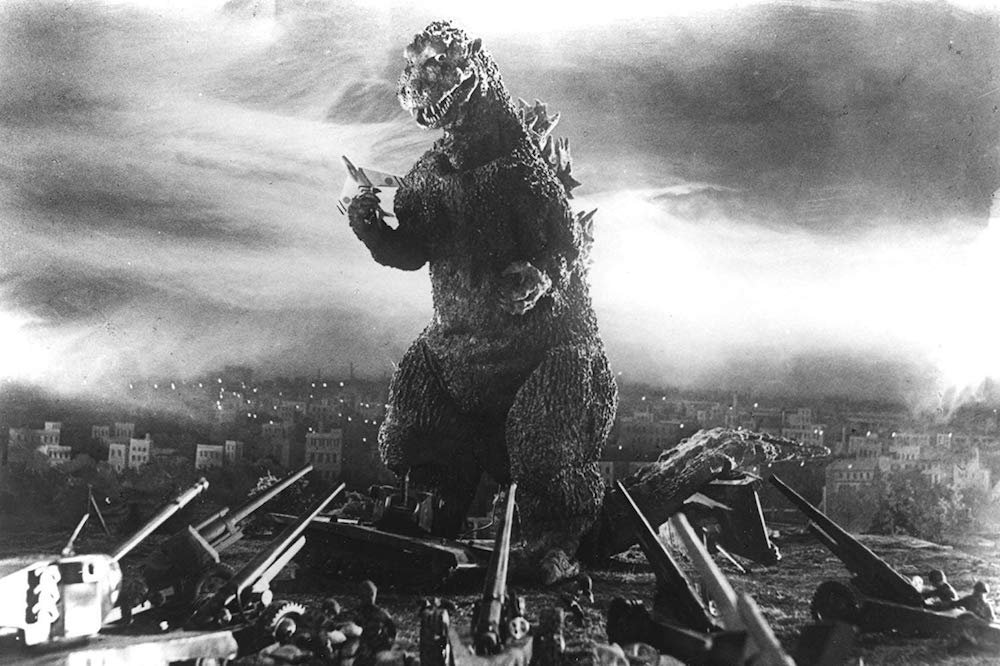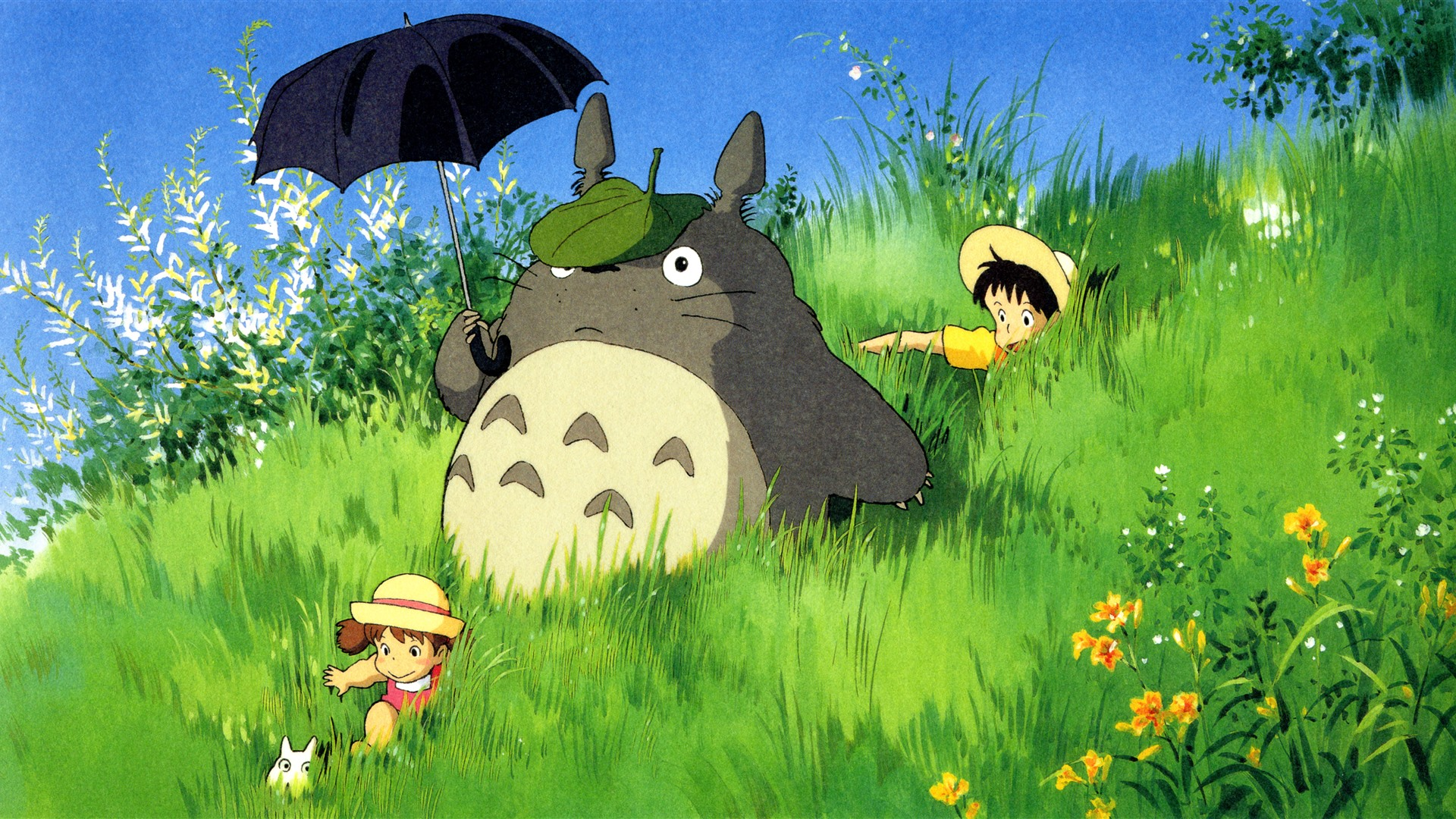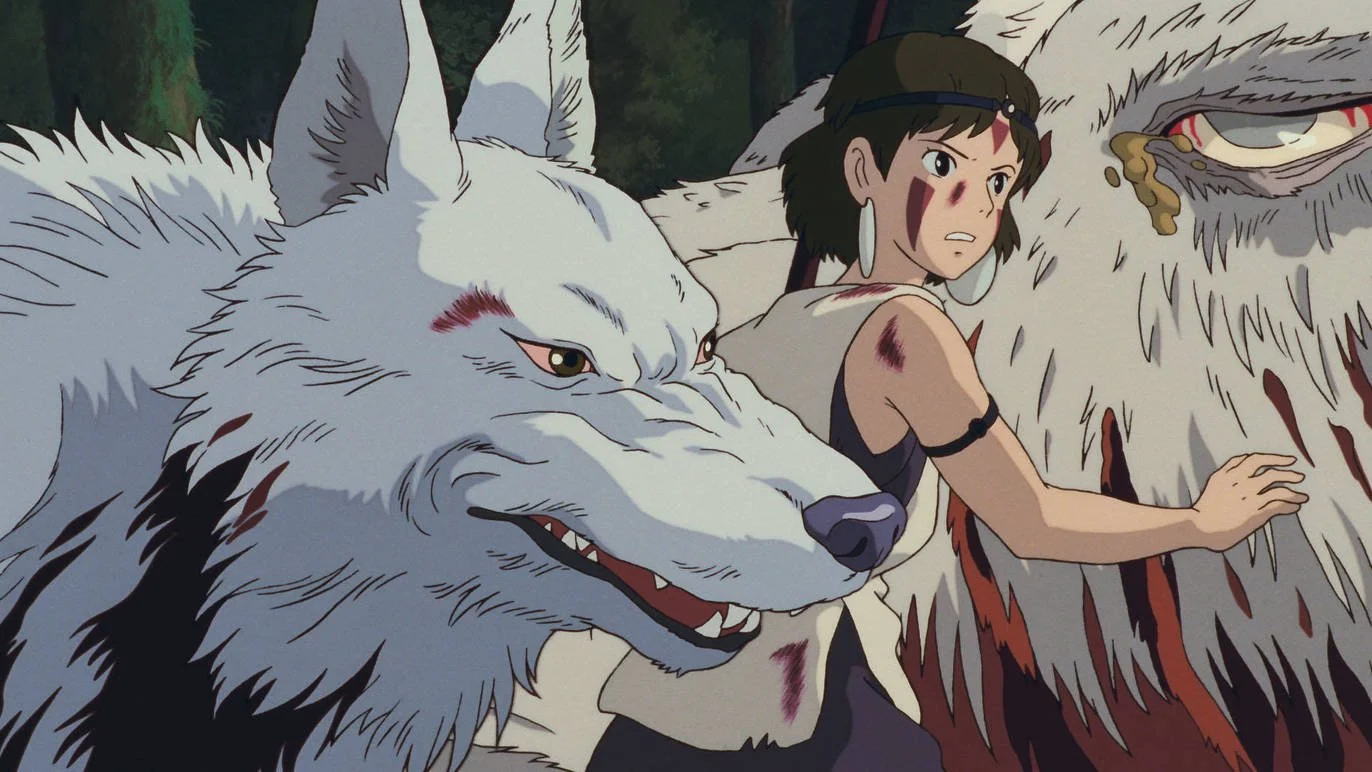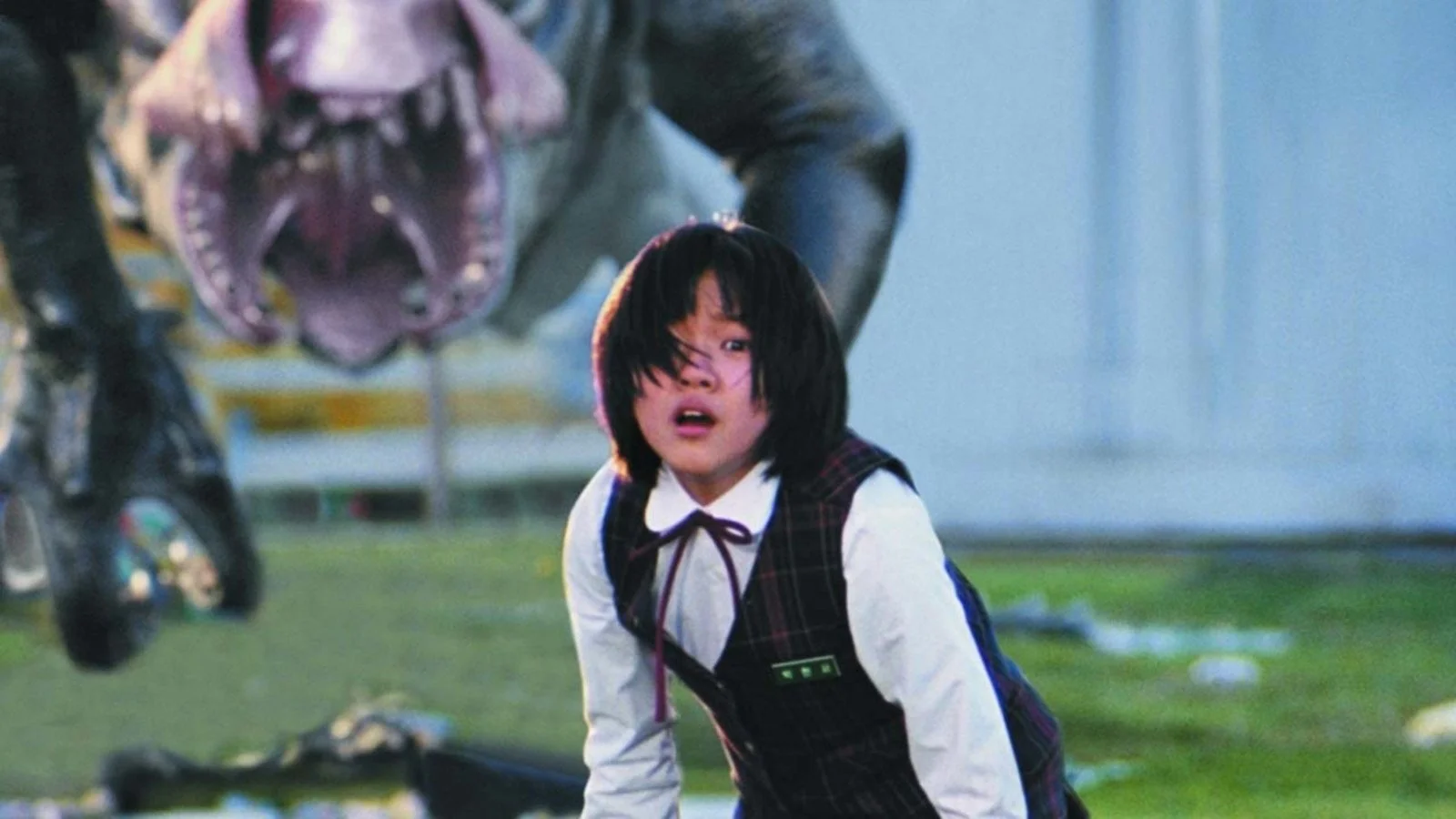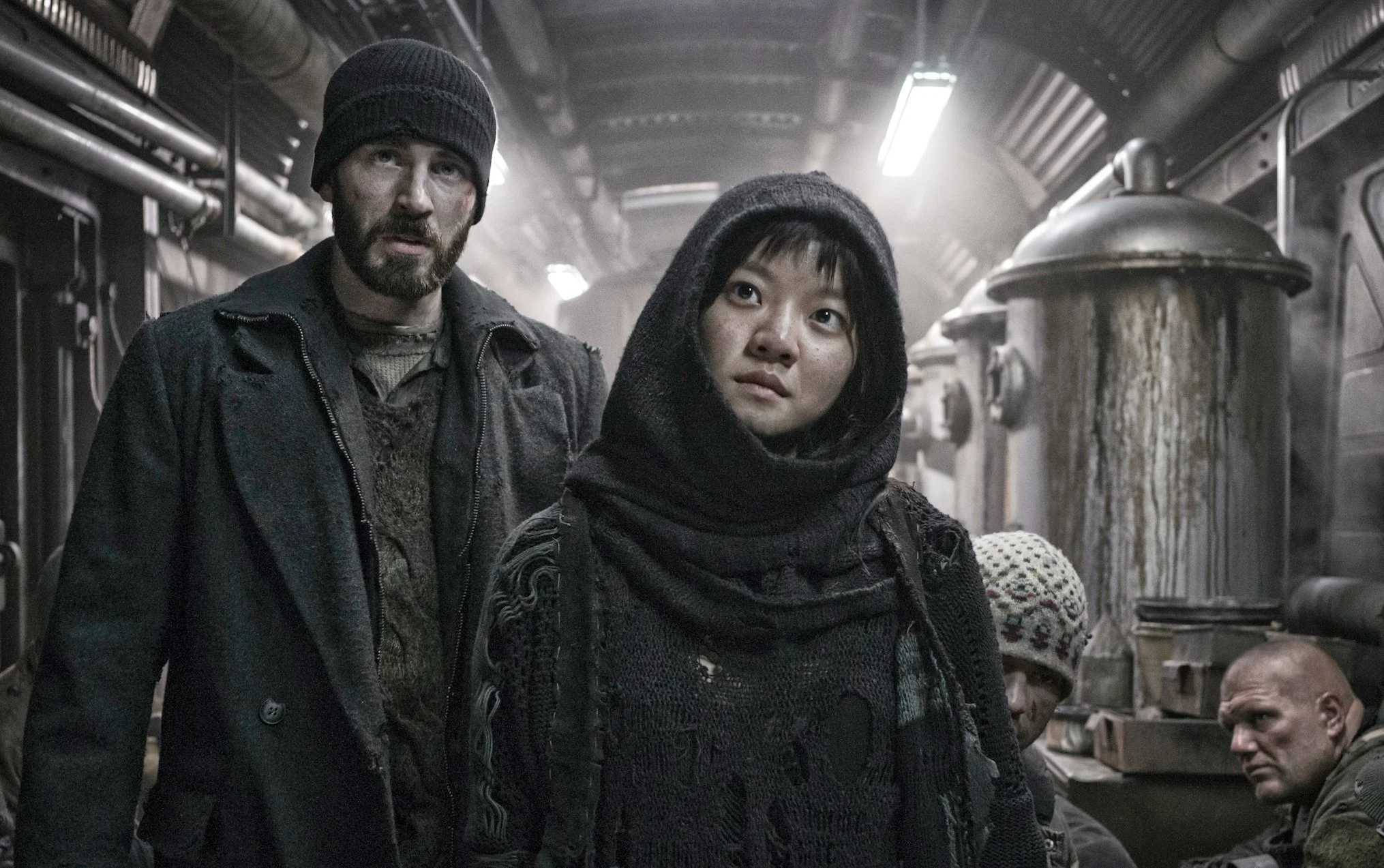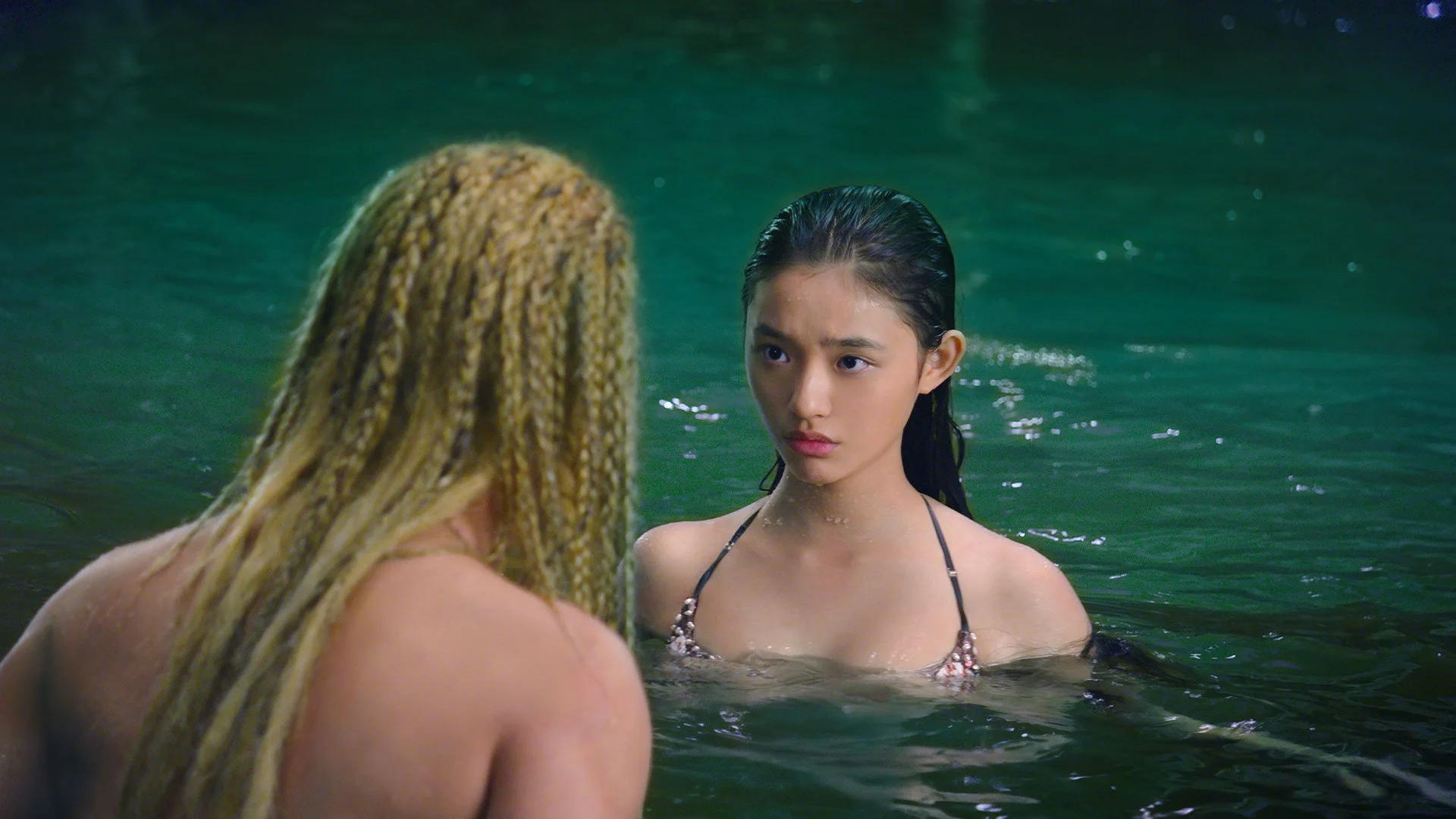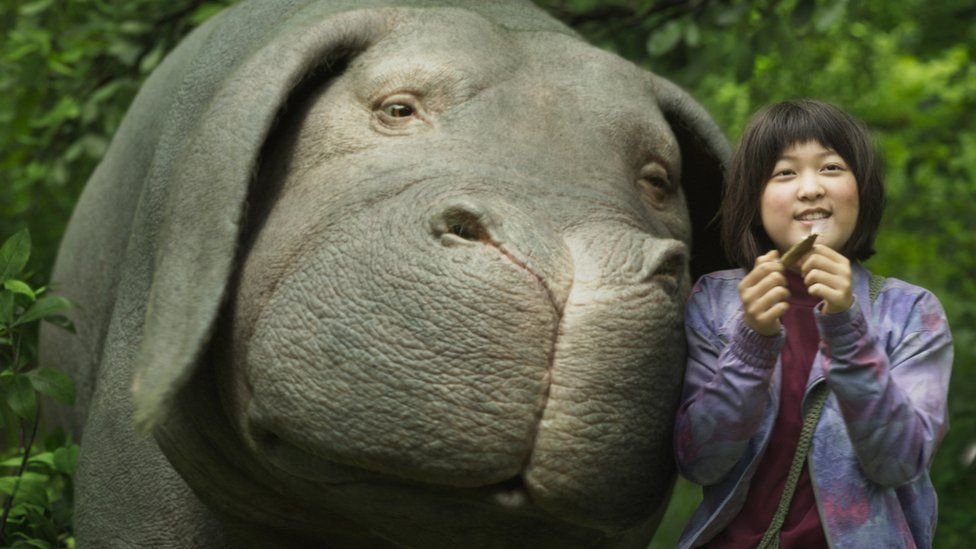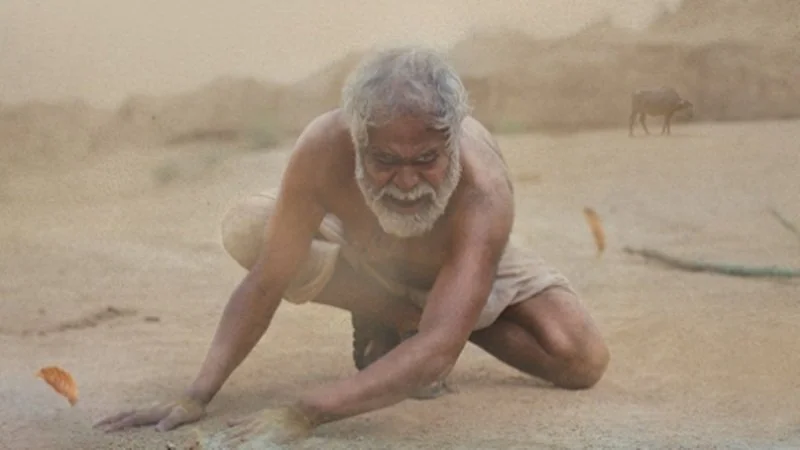API Films with Environmental Themes
Note: There are couples from Academy Award winning directors, Bong Joon-ho and Hayao Mizayaki 🌱
Gojira (Japan, 1954)
Director: Ishiro Honda (Toho Company, Ltd.)
Reflecting upon the real fears of nuclear attacks and their effects on the natural world in a post-war Japan, Honda brought to life Gojira (Godzilla), arguably the most recognizable of the giant monsters, or kaiju, to appear on the silver screen. Gojira tells the story of an ancient sea creature that is awoken by nuclear weapons testing and unleashes destruction on the populated cities. Since its release, there have been several remakes and adaptations of the film all over the world.
Stream: Max, The Roku Channel, The Criterion Channel, Tubi
Nausicaä of the Valley of the Wind (Japan, 1984)
Director: Hayao Mizayaki (Topcraft)
In a post-nuclear futuristic world, Nausicaä, the young princess of the Valley of the Wind, struggles to prevent Tolmekian troops from exterminating a poisonous jungle full of giant mutant insects. Throughout the movie, there are many details reflecting the real environmental issues humans have been facing. In this pre-Studio Ghibli work, Hayao Mizayaki emphasizes the importance of coexistence between humans and nature as well as reminds us to protect instead of control the world we are living in.
Stream: Max
My Neighbor Totoro (Japan, 1988)
Director: Hayao Mizayaki (Studio Ghibli)
Two young girls, Satsuki and Mei, move to an old house in the countryside with their father to be closer to the hospital where their mother is staying. Here, the girls discover a large, friendly forest spirit called “Totoro” and his magical friends. Exploring their new surroundings and befriending the spirits help Satsuki and Mei cope with their mother’s illness. Nature becomes a safe place for them to seek escapism and comfort. Nature is also crucial to the village people implied by the image of a sacred camphor tree.
Stream: Max
Princess Mononoke (Japan, 1997)
Director: Hayao Mizayaki (Studio Ghibli)
Sharing some similarities with Miyazaki’s previous work Nausicaä of the Valley of the Wind (1984) in terms of topics and themes, Princess Mononoke follows the journey of Prince Ashitaka after being cursed by a hideous demon. To find a cure, he has to head to the forests of the west. Along the way, he encounters San, a human raised by the wolves, and Lady Eboshi, the leader of Irontown. The war between the forest gods and the consumers of the forest’s resources in the movie demonstrates the complex relationship and the failure to coexist between civilization and nature. The conflict between human’s development and nature’s need for preservation is also discussed.
Stream: Max
The Host (South Korea, 2006)
Director: Bong Joon-ho (Chungeorahm Film, Happinet Pictures)
Following the critical and commercial success of his sophomore film Memories of Murder (2003), Bong Joon-ho went bigger and scarier with a monster film that cleverly subverts expectations with layers of environmental and political themes. The Host tells the story of a large amphibious creature that attacks the people of South Korea after an American military pathologist dumps formaldehyde into the Han River. Bong was inspired by a local article featuring a deformed fish with an S-shaped spine found in that very river.
Stream: Paramount+, The Roku Channel, Kanopy
Snowpiercer (South Korea & Czech Republic, 2013)
Director: Bong Joon-ho (Moho Film, Opus Pictures, Union Investment Partners, Stillking Films)
Set after a failed attempt to stop global warming which led to a new ice age on Earth, the film depicts life on a train which carries the last survivors. The passengers are segregated, with the upper class in the luxury front cars and the poorer class being oppressed in the tail compartments. Aside from classism and capitalism, the constant themes in Bong’s movies, Snowpiercer also talks about the environment and reminds us that the end of the world is possible if humanity fails to save nature.
Stream: Netflix, Amazon Prime Video, Hulu
Moana (United States, 2016)
Director: John Musker & Ron Clements (Walt Disney Pictures, Walt Disney Animation Studios)
Taking inspiration from Polynesian mythology, the film is about Moana, daughter of a chief of a coastal village, who is chosen by the ocean itself to return a mystical relic back to the goddess Te Fiti in order to save her people from a vegetation-killing and fish-repelling blight. To do so, Moana must find the mighty Maui, a shape-shifting demigod who stole the relic and lost it a thousand years beforehand. Throughout the movie, the ocean plays a character who propels Moana to her destiny as the savior of the natural world on the islands. The film also addresses how the exploitation of nature and climate change harm the lives of islanders.
Stream: Disney+
The Mermaid (China & Hong Kong, 2016)
Director: Stephen Chow (China Film Group, Edko Films, The Star Overseas, Hehe (Shanghai) Pictures, Beijing Enlight Pictures, Alibaba Pictures and others)
Loosely based on Hans Christian Andersen’s The Little Mermaid, Stephen Chow’s rom-com fantasy film tells the story of Shan, a mermaid who is sent to assassinate Xuan, a property tycoon who threatens marine life with his usage of sonar technology. However, the two start falling for each other after their encounter. The movie is romantic, wacky, and highly entertaining, but it also gives viewers warnings about serious threats to sea life and human’s environmental negligence.
Stream: Rakuten Viki
Okja (South Korea & United States, 2017)
Director: Bong Joon-ho (Plan B Entertainment, Lewis Pictures, Kate Street Picture Company)
Mija, a young girl living in the mountain region of South Korea, raised and developed a close relationship with a genetically modified "super pig" called Okja. After their separation, Mija goes on a journey to New York City to save Okja from being slaughtered by the meat industry. Through an emotional story about friendship, the film discusses the environment, animal rights, and how capitalism negatively affects them.
Stream: Netflix
Kadvi Hawa (India, 2017)
Director: Nila Madhab Panda (Drishyam Films)
Based on true events, Kadvi Hawa (Dark Wind) portrays the fight for survival of a blind farmer and a bank-loan recovery agent whose lives are heavily affected by climate change. Through the stories of just two characters, Panda shows us the wretched fates of many people when the environment is against humanity. This Hindi-language movie, intense and painfully authentic, is a wakeup call for all of us to protect our world and prepare for the consequences of climate change.
Stream: ZEE5

